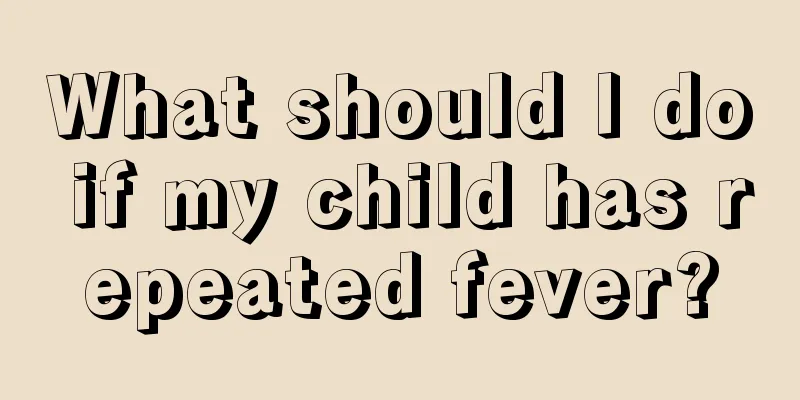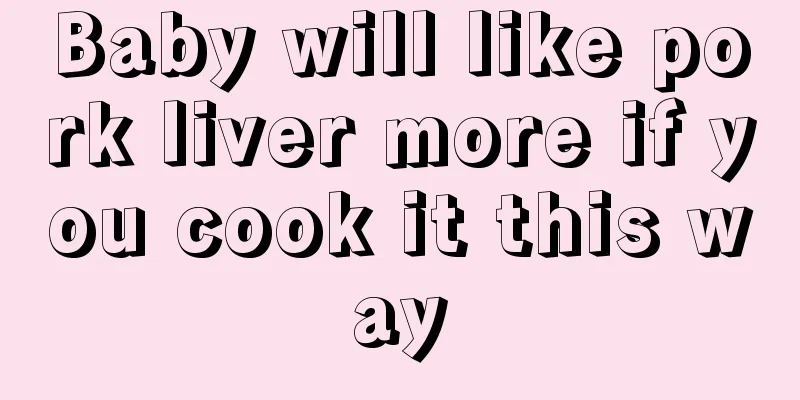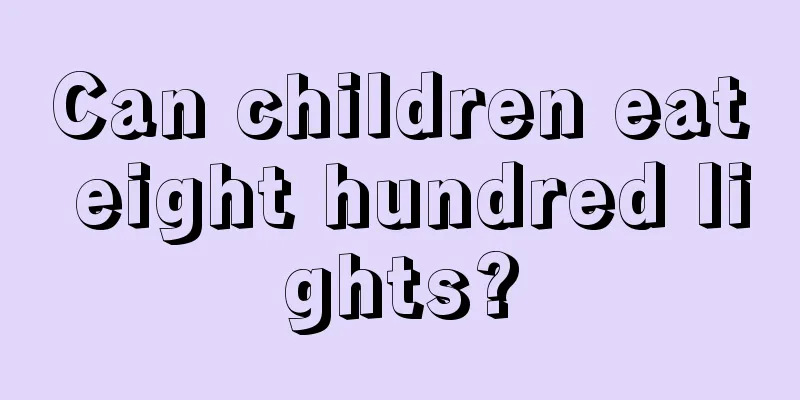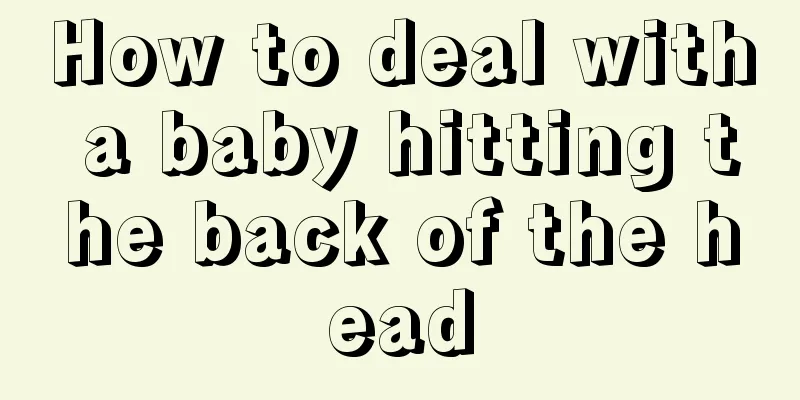What should I do if my child has repeated fever?

|
When a child is sick, it is the most troublesome thing for parents. They regard their children as treasures and would never bear to see their children sick or in pain. As the saying goes: The pain is felt by the child, but the mother feels the pain. Being a parent actually makes it harder for you than your own children. So they frantically looked for doctors and medicine for their children, and tried to find some folk remedies to solve the problem. In fact, there are some methods that can improve the situation greatly. So what should we do if children have recurring fever? 1. Maintain air circulation in the home: If the home has air conditioning, maintain the room temperature between 25-27℃. You can place your baby in an air-conditioned room or use an electric fan to blow around him to slowly lower his body temperature and make him feel more comfortable. But if the child's limbs are cold and the child is shivering violently, it means that warmth is needed. For the child's comfort, you can soak his hands and feet in warm water. Generally, the temperature of children who have chills may continue to rise. 2. Take off too many clothes: If the baby's limbs and hands and feet are warm and the whole body is sweating, it means that the baby needs to dissipate heat, so he can wear fewer clothes. 3. Warm water bath: Undress the baby and rub the whole body with a warm water (30~37℃) towel. This will dilate the blood vessels in the baby's skin and release body qi. In addition, when water vapor evaporates from the body surface, it will also absorb body heat. 4. You can use a cooling patch: the water in the gelatinous substance of the cooling patch can take away the heat when it evaporates, and there will be no excessive cooling. (The effect is not obvious, you can use it if you want.) It is not recommended to use an ice pillow because it is difficult for the baby to turn his body and an ice pillow can easily cause local overcooling or hypothermia. 5. Drink more water/milk: Give your baby more water/milk to help with diuresis and detoxification, and prevent dehydration. Water has the function of regulating temperature, which can lower body temperature and replenish water lost in the baby's body. Milk (80-90% is water.) 6. Use antipyretics: When the baby's core temperature (rectal temperature or ear temperature) exceeds 38.5℃, you can use antipyretic solutions or suppositories appropriately. Strictly follow the instructions, check the dosage, and do not overdose. Drink plenty of water after taking antipyretics to make them more effective. Children with severe vomiting can use antipyretic suppositories. 7. Send to hospital for treatment promptly: If the body temperature of an infant under 3 months old exceeds 38.5 degrees, the child must be taken to the hospital for examination to rule out urinary tract infection, sepsis, meningitis and other serious infections, because infants under 3 months old have weak immunity and limited ability to control infection. . 8. Observe changes in fever and other related manifestations. For example, cough, diarrhea, headache, convulsions, sore throat, ear pain, rash on the body, repeated vomiting, conjunctival congestion, pale complexion, mental depression and other accompanying symptoms. Before seeing a doctor, parents should sort out their child's fever process and other symptoms, as well as medication usage and reaction to medication, which will help with the diagnosis of the disease. If the fever lasts for at least 24 hours, taking your child to see a doctor can provide a more useful diagnosis. Even if you do a blood test, it will only be of preliminary significance if you do it 24 hours after the high fever. After reading the above introduction on what to do when children have recurring fever, I think everyone should have some understanding. There are many ways to improve children's fever symptoms. We should identify the cause as early as possible and then take targeted improvement and treatment measures. Do not blindly seek medical treatment and drugs everywhere. We must take good care of our health and not let our families worry. |
<<: What should I do if my child has a high fever?
>>: What to do if your child has a bloated stomach and fever
Recommend
What to do if your child keeps coughing in the middle of the night
If a child keeps coughing in the middle of the ni...
Four methods of massage for children's abdominal distension
The feeling of bloating is very uncomfortable. In...
What is the cause of the baby's fever and rash?
Parents are most afraid of their children having ...
How to treat children's hallux valgus?
The condition of clubfoot can be discovered after...
What is the cause of the 9-year-old child's eye twitching?
In our lives, there are some children who love to...
What to do if your child has a hoarse throat due to internal heat
Getting angry is a problem that many people have,...
What kind of fruit is good for a three-year-old child?
Fruits are not only delicious but also have high ...
What is the best age for babies to learn to write?
As babies grow up, they will gradually have a cer...
The child shook his head, mainly because of it
For some more careful mothers, they sometimes fin...
How to treat cerebral palsy in children
In our daily lives, many women are prone to cereb...
Premonitions of childhood rash
This type of emergency disease in young children ...
What does a positive TSH result in newborn screening mean?
If the TSH test of a newborn is positive, it is l...
What should I do if my newborn baby hiccups and poops?
Hiccups are a very normal thing for every adult. ...
How to deal with eczema in a 5-year-old baby?
If a 5-year-old child has eczema, the child's...
What to do if your child has not had a bowel movement for 3 days
Since newborn babies do not have the ability to d...









